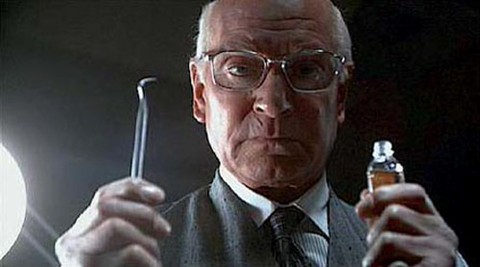
We always love it when The Economist makes a cutting reference to Americans’ preference for bright shiny teeth. It’s almost as if the magazine takes pride in English teeth, as a sign of lack of vanity, wise allocation of health resources, or what have you.
The mag’s latest crack got Microkhan thinking about the reasons for England’s middling dental health. And that train of thought led us to the World Health Organization, which (bless its black-helicopter heart) actually tracks the concentration of dentists by country. You can use this online app to glean the raw data, or you can download a neatly collated Word document here. (The data in the document is all from 2004, the last year for which every country reported its dental statistics.)
As we suspected, there’s a relative dearth of dentists in Great Britain; the nation actually has fewer dentists per capita Belarus, Slovakia, and a whole throng of other less prosperous European peers. But what’s most surprising about the table is that, at least at the top, there appears to be little correlation between dentist prevalence and prosperity. Sure, Norway is tops, but the runner-up is Lebanon? What’s the deal in Uruguay? And while we understand how Soviet-style medical training would lead to a surfeit of dentists in Estonia and Cuba, what’s the explanation for the Domincan Republic’s bounty of teeth fixers? The DR has more than double the number of dentists per capita as Britain, and 43 percent more than the U.S.
There’s certainly no one right answer—is there ever?—but there are obviously cultural norms at work here. Once a society’s well-off become convinced that a perfect smile is integral to beauty—perhaps via an obsession with actresses who are held up as paragons of loveliness—demand is created virtually overnight. And we suspect that the profit margins on cosmetic dentistry are pretty high, as we’ll undoubtedly find out when Microkhan Jr. enters the Braces Years.
Please note that a high dentists-per-capita figure does not necessarily mean that a nation’s poor gets to have affordable dental care. In the DR, for example, local dentists don’t necessarily seem too interested in tending to the teeth of rural children.


Tony Comstock // Jun 8, 2009 at 12:28 pm
Fucker. You stole the picture I stole:
http://www.comstockfilms.com/blog/tony/2008/11/20/google-update/
Brendan I. Koerner // Jun 8, 2009 at 12:51 pm
@Tony: Coincidence, I swear!
Guess we’ve long had the same Marathon Man-related nightmares…
Jordan // Jun 8, 2009 at 6:25 pm
I wonder how much of it comes down to compensation. In the U.S., dentists seem to be pretty well paid folk in general. In Britain, rates are mostly going to be set at the whims of the NHS, so they might not be quite so well off.
As an interesting side note, one of my friends who works in the OHSU dentistry school pointed out that most of the dental students there of American extraction joined the school because they couldn’t get into med school. The foreign nationals there tend to be more competent and take more pride in their work.
Brendan I. Koerner // Jun 8, 2009 at 7:19 pm
@Jordan: Right, good point. What struck me was the sort of random geographic/economic distribution of pervasive dentistry. I would have assumed that it was closely correlated to the standard development indicators, and so that the top of the table would be dominated by the U.S., the E.U., Japan, etc. But that just didn’t turn out to be the case.
That said, the correlation is stronger toward the bottom of the table. According to the Word doc I linked to, there were zero dentists in Angola as of 2004. Sounds inconceivable, and it probably is–I’m sure there are a lot of Angolan physicians who pull teeth as necessary. They’re just not “officially” dentists, so they don’t get tallied by WHO.